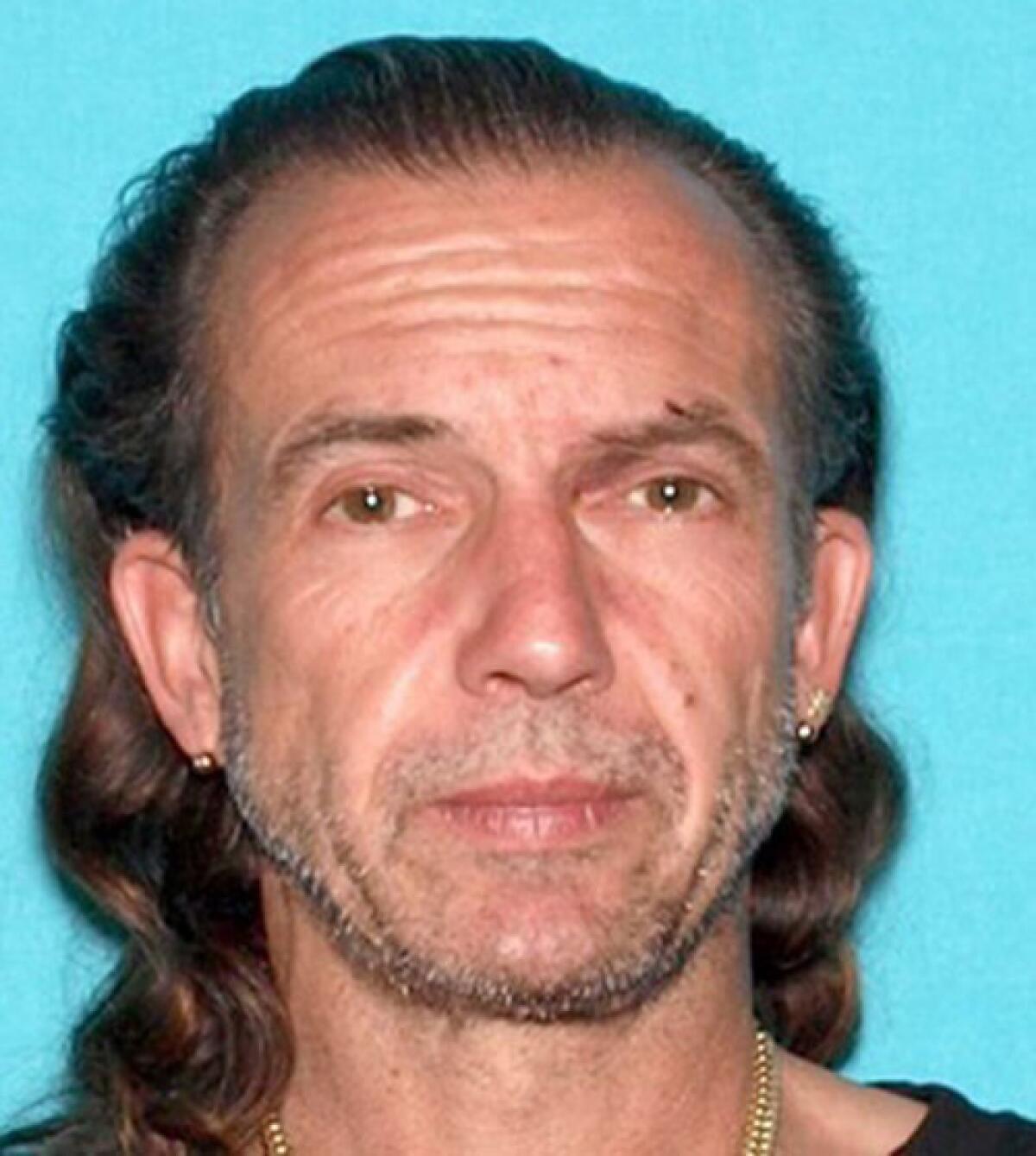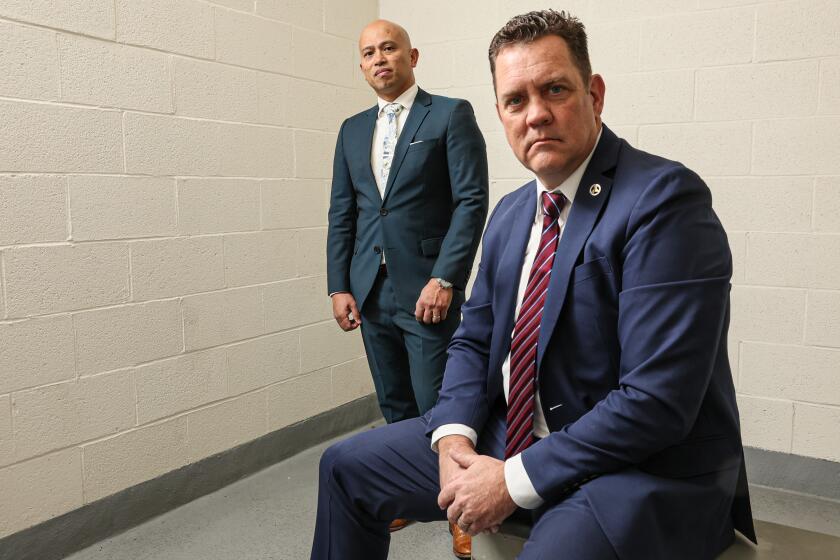She sold his Encino home out from under him for $1.5 million. Then he killed himself

- Share via
Miracle Williams detailed to a federal judge the dire situation that led to her partner’s suicide. She talked about the woman she holds responsible for his death.
Robert Tascon had been embroiled in a legal dispute since 2021, Williams said through tears, over a house he owned in a beautiful, exclusive area in Encino. That September, investigators say, a woman named Caroline Herrling fraudulently sold his house out from under him for $1.5 million.
Herrling, 44, pleaded guilty last year to conspiracy to commit wire fraud and was sentenced Friday by Judge Maame Ewusi-Mensah Frimpong to 20 years in federal prison.
Charles Wilding went missing from his Sherman Oaks neighborhood in fall 2020. Investigators trying to find him uncovered an elaborate fraud.
“He was trying to sell the house so we could start our lives over,” Williams told the judge during Herrling’s sentencing hearing, her voice cracking with emotion. “The situation made him feel helpless.”
Tascon came from a wealthy family that set up two trusts for him in California, according to a U.S. Postal Inspection Service report. They provided enough money for him to spend freely, Travis Hartgraves, a lawyer and case manager for Tascon, told investigators last year.
But Tascon developed an alcohol problem, Hartgraves told investigators. Williams persuaded him to move with her to Abilene, Texas, in 2018 to get away from negative influences.
Tascon’s Encino home was his last asset, although he still had monthly payments from the trusts, Hartgraves told Lyndon Versoza, a postal inspector working the fraud case.
Tascon wanted to sell the home, according to the postal inspectors’ report, which was filed as part of the case against Herrling. But he couldn’t because it had become occupied by squatters. It is still unclear how Herrling found the property.
She sold Tascon’s home by using a co-conspirator with fake identity documents to pose as the homeowner, according to the U.S. Justice Department. Herrling had represented herself to the buyer as a licensed California attorney representing property owners in distressed situations needing to sell, according to an affidavit from Mark O’Donnell, a homicide detective supervisor with the LAPD.
In a plea agreement, Herrling admitted to setting up bank and E-Trade accounts to receive the proceeds of the sale, which Tascon did not authorize and which was accomplished through identity theft.
Hartgraves told Versoza that the house was sold for half its value.
Herrling used money from the sale to help pay for a home in West Hills, according to the affidavit.
After the house was sold out from under him, Tascon filed a lawsuit in an attempt to get it back.
“I am never going to get my house back,” Hartgraves recalled Tascon telling him.
“The fraudulent sale just about crashed him,” Hartgraves told Versoza.
The fraudulent sale was the final straw; it consumed Tascon, Hartgraves said, according to court filings.
Tascon killed himself on Sept. 11, 2022. He was 53. The police report noted that he had a history of mental illness and was involved in fraud litigation.

When investigators interviewed Herrling in January 2023, she denied having anything to do with the sale of Tascon’s property. She claimed her only involvement was driving Tascon to a notary to facilitate the sale of the house — and that she was only paid around $150 to do so.
When Versoza asked Herrling to describe Tascon, she couldn’t, saying that he had worn a hat and a mask. Later, when confronted, Herrling didn’t deny profiting off the sale, saying instead that she did not leave Tascon destitute, according to the affidavit.
During sentencing, Herrling’s attorney, Alex Kessel, said he didn’t think there was “any evidence to suggest that my client directly caused the death” of Tascon.
“He had a mental illness that developed long before the house in California was fraudulently sold,” Kessel said, citing a previous suicide attempt by Tascon in 2021. “We never know why somebody kills themselves ... I haven’t been given in evidence any suicide note where he laid out his state of mind and mental state at the time.”
Asst. U.S. Atty. Andrew Brown stressed that Tascon “had one property and he lost it.”
Frimpong agreed with the prosecutor. During the sentencing hearing, she said there was evidence “enough to find the death was a suicide and it was caused in part by the loss of [Tascon’s] property.”
Tascon bequeathed his assets to Williams, his common-law wife, investigators said. However, with the fraudulent sale of the Encino home, he had nothing left to give her.
When Williams spoke in court, she acknowledged that Tascon was “mentally fragile,” but she said the sale of his home had only worsened matters.
Williams held a framed photo of Tascon when she first spoke. She described him as her “best friend.” After his death, Williams told the judge, she’d also tried to kill herself.
“This lady is a big manipulator and a con artist and she’s gotten away with using the dead,” Williams told the judge, referring to Herrling. “Hold her accountable and don’t let her do this to anyone else. Because this has ruined my life.”
More to Read
Sign up for Essential California
The most important California stories and recommendations in your inbox every morning.
You may occasionally receive promotional content from the Los Angeles Times.















